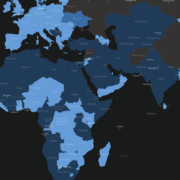A Postal and Telecommunications Regulatory Authority of Zimbabwe official has cleared the air on why the mobile telecommunications industry is oligopolistic. Addressing the Mobile Money Digital Payments conference, Potraz Director of Technical Services Eng Baxton Sirewu said while the nation’s spectrum is finite there are network operators who cater for those in the rural areas.
Addressing the Mobile Money Digital Payments conference, Potraz Director of Technical Services Eng Baxton Sirewu said while the nation’s spectrum is finite there are network operators who cater for those in the rural areas.
“I wish to confirm that spectrum is a scarce resource as was explained by the minister and DG. So in some countries you may find more players than we have. But you’ll need to look atr how those players are considered in the market.
“ In some markets we have some players who are reserved for rural areas. Or who are identified to provide services for rural areas. And there are spectrum signals that have propagation characteristics that are suitable for rural areas. Its not possible to have eight players stuck in the 800-900MHz band,” he said.

Potraz director of Technical services Eng Baxton Sirewu stressing a point at the Mobile Money and Digital Payments Conference
He said the industry does not have three mobile operators.
“Then in 2009 we expanded their scope to provide broadband. But when you look at the whole space of telecommunication operators, we have got 10 operational service providers at the moment,” noted Eng Sirewu.
Due to convergence, Eng Sirewu argued that there are about five mobile operators. This could include Powertel and Africom.
“. And because of convergence at the end of the day we are likely to have more than five operators providing mobile services or LTE because LTE is now the default technology. But as for GSM in the case of India it’s not possible. It’s either we can have 2MHz per operator which is not economic,” he said.
Potraz Director General Dr Gift Machengete at the same event said since the spectrum is limited it would be difficult for the regulator to monitor more than three players.
“Our spectrum is finite and we cannot have everyone share the spectrum. Hence we do have three operators instead of the seen or more. The example given by the person is that in India they have seven or eight sharing the spectrum.
“It is important to note that Zimbabwe is not as big as India. Zimbabwe is smaller. And even regulating eight players may not be that easy. But the three we talked about are the MNOs,” he said.
Dr Machengete added that they have a framework to incorporate MVNOs and VNOs into the cutthroat market for the benefit of consumers,
“And again I want to add… to say that still we are creating a competitive atmosphere where we are allowing the Mobile Virtual Network Operators and Vitual Network Operators to ride on what we already have,” he said.












Comments